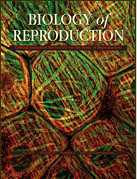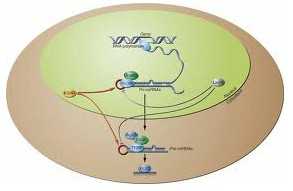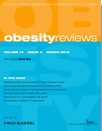Bio Repro:新生儿植物雌激素暴露如何导致成年不育
2012-05-24 EurekAlert! EurekAlert!
2012年5月2日出版的《生殖生物学》Biology of Reproduction杂志预印论文栏目的一篇论文描述了出生前短暂的植物雌激素暴露对小鼠输卵管的影响,并对基于大豆的婴儿配方奶粉对人类新生儿的影响进行了建模。这些结果提示在子宫中或者在儿童期暴露在雌激素化学物质中可能对成年女性生育力有长期的影响,这可能为某些无法解释的女性不育病例提供机制基础。 之前的研究提示,新生儿暴露在植物雌激素或其
2012年5月2日出版的《生殖生物学》Biology of Reproduction杂志预印论文栏目的一篇论文描述了出生前短暂的植物雌激素暴露对小鼠输卵管的影响,并对基于大豆的婴儿配方奶粉对人类新生儿的影响进行了建模。这些结果提示在子宫中或者在儿童期暴露在雌激素化学物质中可能对成年女性生育力有长期的影响,这可能为某些无法解释的女性不育病例提供机制基础。
之前的研究提示,新生儿暴露在植物雌激素或其他环境雌激素(功能类似于人体自然制造的雌激素的合成物质)中可能对成年女性生殖健康有长期的影响。美国国立卫生研究院下属的国立环境卫生科学研究所(NIEHS)的Carmen J. Williams实验室的一位研究人员Wendy N. Jefferson此前证明了新生儿暴露在植物雌激素大豆异黄酮中导致了雌性成年小鼠完全不育。不育的原因包括无法排卵、输卵管支持植入前的胚胎发育的能力减少,以及子宫无法支持胚泡阶段的胚胎有效植入。
现在,这个研究组报告说,新生儿暴露在大豆异黄酮中会改变小鼠输卵管的称为粘膜免疫应答的免疫应答水平。其中一些免疫应答基因从大豆异黄酮治疗之初就被改变了,而另一些基因是在更后来的小鼠怀孕早期的时候被改变的。这些变化合起来导致了有害的免疫应答改变,而且导致了输卵管支持植入前胚胎发育的能力被削弱,这两者都可能对不育有贡献。
这些发现提高了一种可能性,即在敏感的发育窗口期暴露在低水平的环境雌激素或植物雌激素中可能改变子宫和输卵管的粘膜免疫应答的平衡。
对于这些小鼠,这些变化可能发生的发育窗口仅仅在新生儿阶段发现;对于人类,生殖道的发育持续到青春期的出现。因此,女性胚胎、新生儿、儿童和青少年的雌激素化学物质暴露全都对生殖道的粘膜免疫有潜在影响,因此也就对成年生育力有影响。这组作者提出了一种观点,即限制这类暴露,包括让基于大豆的婴儿配方奶粉的使用最小化,将是朝着维持女性生殖健康迈出的一步。
由生殖研究学会(Society for the Study of Reproduction)出版的《生殖生物学》杂志是生殖生物学领域的一份顶级同行评议的科研杂志。(生物谷Bioon.com)

doi:10.1095/biolreprod.112.099846
PMC:
PMID:
Neonatal Phytoestrogen Exposure Alters Oviduct Mucosal Immune Response to Pregnancy and Affects Preimplantation Embryo Development in the Mouse
Wendy N. Jefferson, Elizabeth Padilla-Banks, Jazma Y. Phelps, Amy M. Cantor and Carmen J. Williams
Treatment of neonatal mice with the phytoestrogen genistein (50 mg/kg/day) results in complete female infertility that is caused in part by preimplantation embryo loss in the oviduct between days 2 and 3 of pregnancy. We previously demonstrated that oviducts of genistein-treated mice are "posteriorized" as compared to control mouse oviducts because they express numerous genes normally restricted to posterior regions of the female reproductive tract (FRT), the cervix and vagina. We report here that neonatal genistein treatment resulted in substantial changes in oviduct expression of genes important for the FRT mucosal immune response, including immunoglobulins, antimicrobials, and chemokines. Some of these altered immune response genes were chronically altered beginning at the time of neonatal genistein treatment, indicating that they were a result of the posteriorization phenotype. Other alterations in oviduct gene expression were observed only in early pregnancy, immediately after the FRT is exposed to inflammatory or antigenic stimuli from ovulation and mating. The oviduct changes affected development of the surviving embryos by increasing the rate of cleavage and decreasing the ratio of trophectoderm to inner cell mass cells at the blastocyst stage. We conclude that both altered immune responses to pregnancy and deficits in oviduct support for preimplantation embryo development in the neonatal genistein model are likely to contribute to the infertility phenotype.
本网站所有内容来源注明为“梅斯医学”或“MedSci原创”的文字、图片和音视频资料,版权均属于梅斯医学所有。非经授权,任何媒体、网站或个人不得转载,授权转载时须注明来源为“梅斯医学”。其它来源的文章系转载文章,或“梅斯号”自媒体发布的文章,仅系出于传递更多信息之目的,本站仅负责审核内容合规,其内容不代表本站立场,本站不负责内容的准确性和版权。如果存在侵权、或不希望被转载的媒体或个人可与我们联系,我们将立即进行删除处理。
在此留言














#植物#
61
#Bio#
79
#PRO#
52